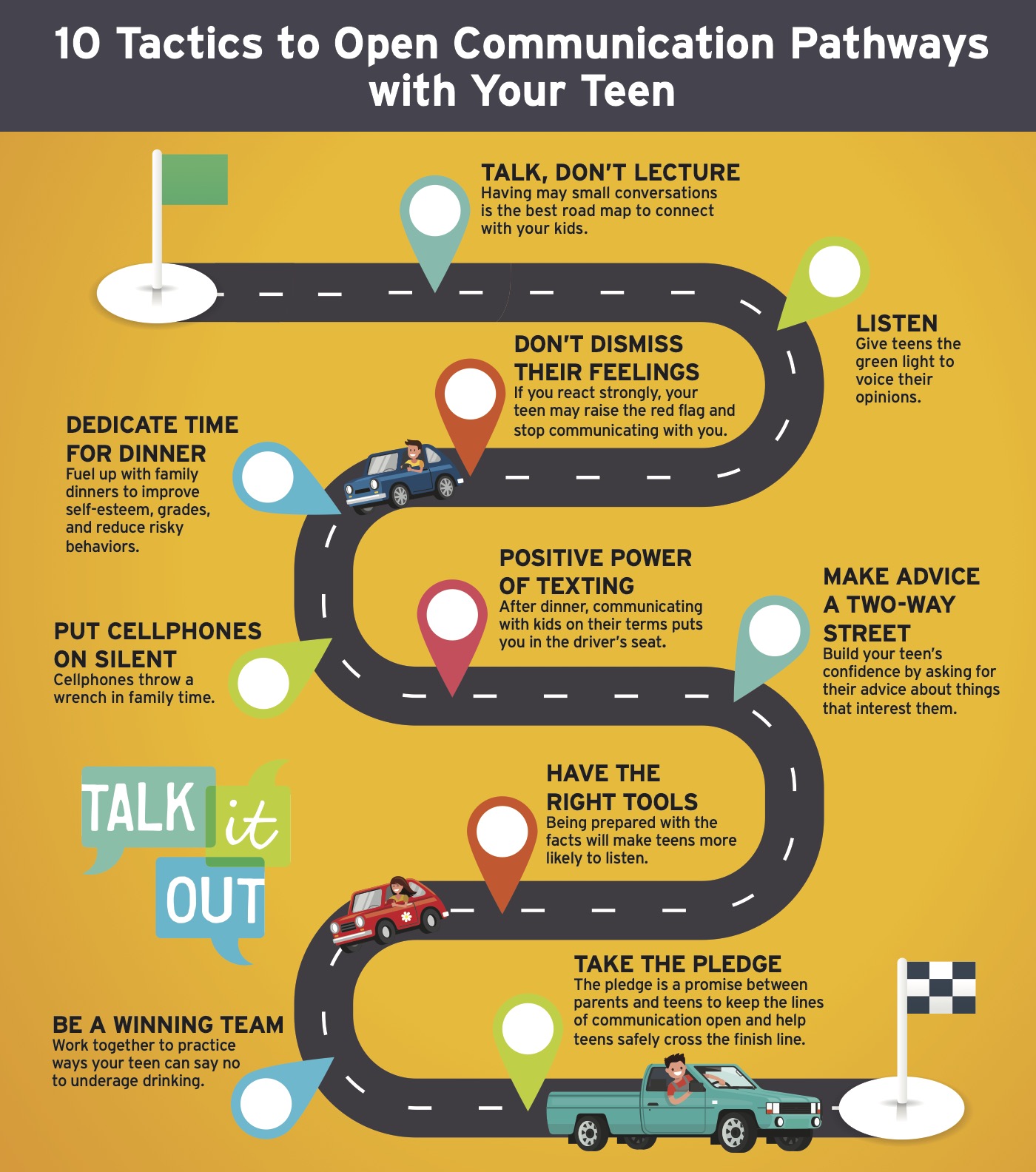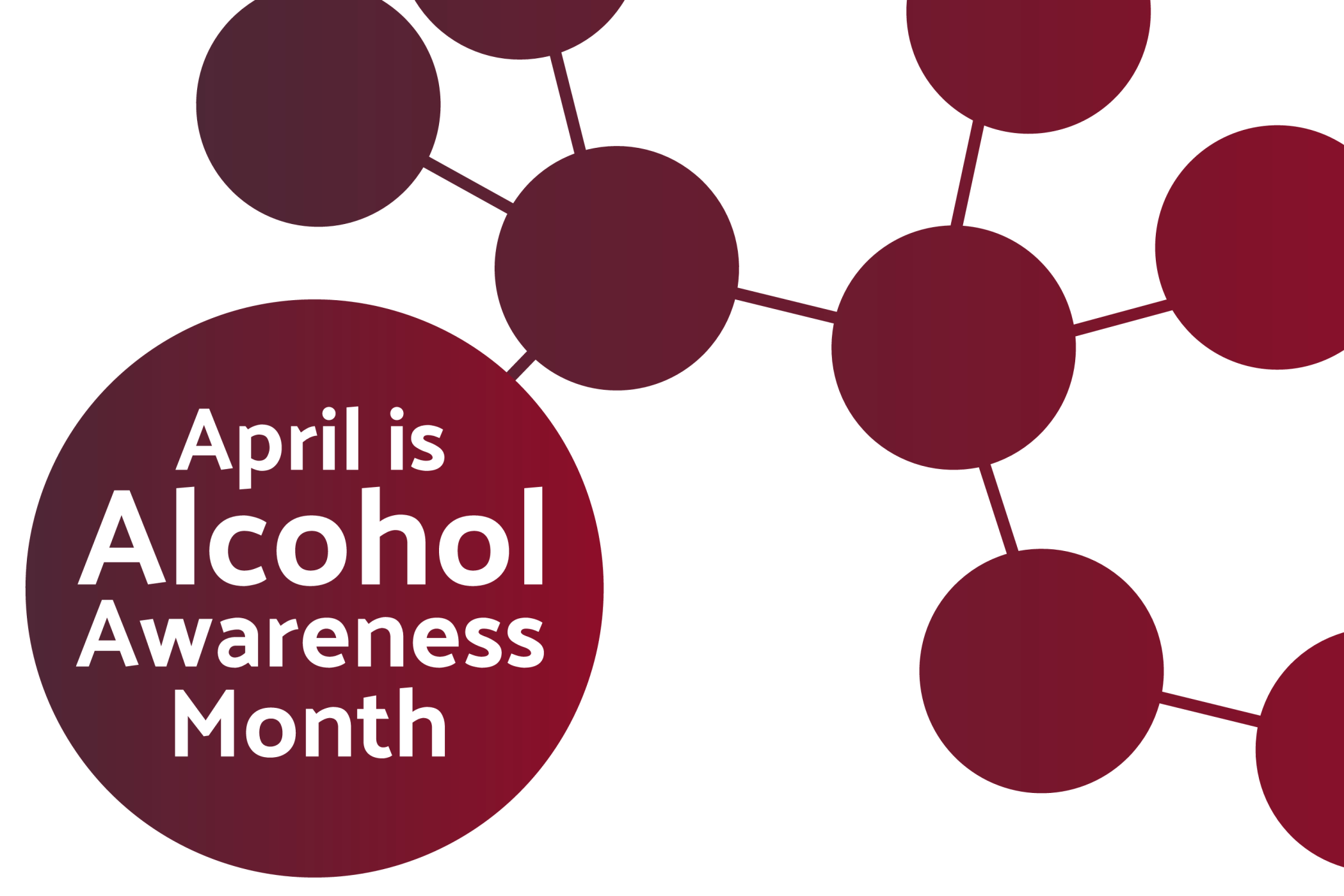10 Tactics to Open Communication Pathways with Your Teen


Navigating the hairpin turns of the teenage years will be challenging for kids and parents. Your oldest may zoom through adolescence, deftly navigating every sharp curve, and make it through with barely a scratch. And just when you start to think you’ll breeze over the parenting finish line your next child throws a wrench in the whole operation and the wheels fall off!
It’s not their fault, or yours, it’s the teenage years. There are some parenting tricks of the trade you can use to open communication pathways with your teen to build a strong relationship and create a winning team.
Talk, Don’t Lecture
Paving the way to an open an honest relationship with your teen doesn’t happen overnight. Luckily, it doesn’t have to be a big project. Experts say the best road map to connect with your kids is to have many small conversations. And every conversation doesn’t have to be about heavy topics. Talking about their favorite sports team, a new band they’re listening to, or what’s for dinner are all good topics to get your kids talking.
If you’re having trouble talking to your teen about heavier topics, including preventing underage drinking, we have online resources to help you get started. Talking to your kids early and often is a good way to share important information without teens tuning you out.
Listen
As adults we tend to believe that we have all the answers. After all, this isn’t our first time around the track! We want to impart that wisdom on our kids, so they don’t hit the same potholes that we did, but teens need to learn some things on their own.
Good listening is a respectful way for parents to show teens that their ideas and opinions matter too. Listening without judgement doesn’t mean you agree with everything they’re saying. It means you recognize that they’re growing up and that they should be heard. This open communication will show teens that you’re taking their opinions seriously. They’ll be more likely to listen to your thoughts on the issue of underage drinking, or any other topic, and listen your advice.
Don’t Dismiss Their Feelings
Teenage brains continue to develop until around age 24, so teens may have trouble controlling their emotions. Their pre-frontal cortex is referred to as the control center of the brain. It’s still developing in teens, and may affect their judgement, emotions, and impulse control.
Teens may overreact because they’re feeling insecure, so don’t take it personally. If you react strongly, your teen may raise the red flag and stop communicating with you. Before you try to convince your child that a breakup with their girlfriend is no big deal, remember that their brain isn’t yet equipped to deal with strong emotions right now. Instead, acknowledge their feelings and be supportive. This will make them more likely to share their feelings with you in the future.
Dedicate Time for Dinner
Eating dinner together as a family is a great way to fuel up and foster open communication with your kids. Family meals have been shown to improve their grades, build self-esteem, and reduce risky behaviors.
Keep the conversation light unless your child dives into a deeper subject. You can ask about their day and share news about your day as well. Let dinner be a time when kids can count on having your undivided attention. Building this trust will make it more likely your teen with talk to you when they have a problem and need your help.
Put Cellphones on Silent
Speaking of undivided attention, silencing cellphones at the dinner table should be an important family rule. Incoming text messages, emails, and social media alerts and throw a wrench in family time. Putting phones away for a short time is a respectful way to show everyone we’re focused on family time.
Positive Power of Texting
Yet, when dinnertime is over your cellphones can put you in the driver’s seat. A recent study shows that teens spend more than seven hours a day on their cellphones texting, watching videos, and keeping up with social media. Knowing that teens spend a lot of time on their phones, don’t be afraid to start your own electronic conversations with them. Keep it light. You can ask them what they want for dinner, do they have a ride to their soccer game this weekend, or send a funny picture of the family dog. Speaking to kids on their terms can help open communication pathways.
Make Advice a Two-Way Street
Teens appreciate being on the giving end of advice, so don’t be afraid to ask what they think about subjects they’re interested in. Is your family considering buying a new television for the family room? Your teen may jump at the idea of researching the latest smart TV features (and helping you set it up!) Letting your teen take the wheel will build confidence and pave the way to a better relationship with you.
Have the Right Tools
Most teens think they already know everything and that can make communication difficult. After all, how can you advise and guide your child when they already know it all? Start by having the right tools. Being prepared with the facts will give your discussions more weight and will help your teen realize that you do know what you’re talking about.
When it comes to underage drinking teens think that because they’re growing up, they can act like grown ups and consume alcohol. What they don’t know is that teens who drink regularly are more likely to developing a dependence on alcohol as adults. Underage drinking also can lead to other dangerous behaviors including illegal drugs, binge drinking, unwanted sexual activity, problems at school and more.
Be a Winning Team
Hopefully, your efforts to open communication pathways with your teen will result in their agreement to avoid underage drinking. But your work doesn’t end there. Your teen still needs to keep their foot on the gas when they’re hanging out with friends.
Work together as a winning team to brainstorm ways they can say, “No.” Your teen can volunteer to be a designated driver, make a no-drinking pact with a friend who also wants to avoid underage drinking, or be confident enough to say, “No thank you, I’m having enough fun without alcohol.” Creating a plan will help your teen feel more confident to say no if they feel pressured to drink when they’re with friends.
Take the Pledge
When it comes to preventing underage drinking, Take the Pledge as a family to stop underage drinking. The pledge is a promise between parents and teens to keep the lines of communication open and to continue supporting each other. Growing up can be a bumpy and dangerous road. Give teens all the tools they need to make it safely across the finish line.



